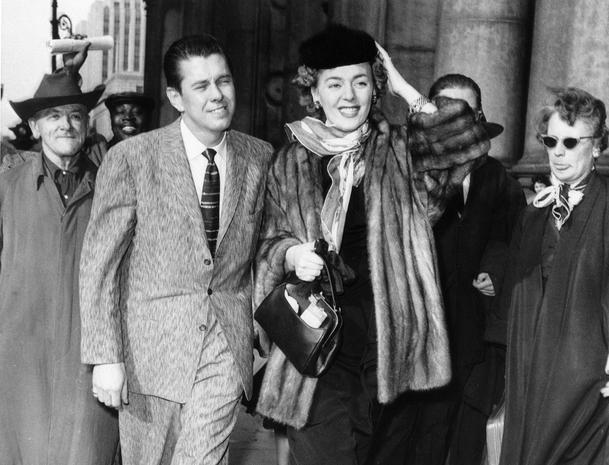In a time when our country seems the most divided since the Civil War, the LGBTQ community remains one of the most misunderstood, vilified and unfortunately, often endangered groups of people in our land. Within this group, transgender women and men experience intolerance, even hostility, in many communities—most regrettably, in the Catholic Church.
Recent statements from the United States Conference of Catholic Bishops and Bishop Michael F. Burbidge of Arlington, Va., have accused transgender men and woman of engaging in sinful activities by being caught up in “transgender ideology,” thereby denying a gift from God in rejecting our gender assigned at birth. They urge transgender folks to repent.
As a transgender woman and an Ob-Gyn physician, and one for whom the Catholic tradition is dear, I would like to clarify that such statements represent a grave misunderstanding of what being a transgender individual is all about.
First, what motivates us is not an ideology, but a medically recognized reality called “gender dysphoria.” The Diagnostic and Statistical Manual of Mental Disorders, an official listing of psychological conditions, previously termed it “gender identity disorder.” But the most recent update recognizes that this condition is not a psychological disorder, stating that dysphoria arises from an inner sense of self that is incongruent with the gender assigned at birth.
This dysphoria is considered a potentially dangerous condition that can result in psychological dysfunction and potentially suicide. Psychological therapy aims at reconciling one’s sense of self with their outer expression. Individuals diagnosed with gender dysphoria are encouraged to express their inner sense of gender in their outward appearance and and actions. They are often treated medically with hormone treatment, such as estrogen or testosterone, and sometimes through gender-affirming surgical procedures.
“I remember the day my therapist affirmed I was experiencing was gender dysphoria. It was as if a great burden had been lifted. I have felt great peace and joy since then, and I have been able to be a much more effective physician and servant of God.”
The therapy for this serious condition is not conversion, repentance or suppression of the underlying feelings. (Believe me, I have tried this latter “solution,” and it only makes things worse.) The treatment is an acknowledgement and expression of one’s true inner identity.
By the time I was finally diagnosed with this condition, I had spent years feeling inadequate, out of sync with myself, guilty and dysphoric, in general. My professional life was unaffected because there, I knew who I was. My private life, however, was very unpleasant. I never contemplated suicide but I remember thinking that if God wanted to take me early, I would be relieved.
I remember the day my therapist affirmed I was experiencing was gender dysphoria. It was as if a great burden had been lifted. I have felt a great peace and joy since then, and I have been able to be a much more effective physician and servant of God.
Far from being convinced by some sort of ideology or choosing a lifestyle, transgender individuals undertake a psychologically fulfilling, and sometimes lifesaving, transition. We are accepting God’s gift to us, the gift of a loving heart and the desire to live to the fullest the life God gave us. “The glory of God is a human being fully alive,” said Saint Irenaeus.
God’s gift is not only our genitals, but the capacity to seek God in all things and live the life Jesus exemplified. The greatest command is love, and we are trying to attain psychological wholeness so we can love God and our fellow human beings.
Until one experiences true gender dysphoria, it is impossible to realize how deeply if affects someone. I now feel more free to pursue my life and serve God.
Misunderstandings of the transgender experience is rooted largely in the portrayal of us by the media. Even though, in many cultures, there is a long history of people who expressed their gender differently, it was not until the 1950s when the notion of a person “changing” their gender became widely known in the United States.
Christine Jorgenson went to Denmark in 1950 for gender confirmation surgery, which began in 1952, and was touted as the first person to have a “sex-change” operation, even though such surgery was done in Europe earlier in the century. On her return, she was the subject of a sensational story in the New York Daily News under the headline “Ex-GI Becomes Blonde Beauty.” (Notice the echoes of sexual exploitation.) This was the beginning of a long parade of exploited and caricatured transgender individuals, mostly women.
Today, many people will remember seeing transgender women on various talk shows where they are presented as oddities. Probably the worst presentation was done, inadvertently, by the otherwise savvy journalist Katie Couric, when she interviewed actress Laverne Cox, a transgender woman, by asking about her genitals.
It is only recently that media focus has turned to the stories of inner conflict, psychological suffering and sometimes real danger that transgender individuals face while trying to live their lives and express their true inner selves.
Moving stories are now heard of young people who recognized early on that something was wrong with their assigned gender. We see stories of heroic parents who stand up for their children once they realize that this is more than “just a phase.”
“Those in the Catholic Church who condemn transgender individuals and LGBTQ individuals are missing a key element in the mission of the church—to reach out to every individual in love.”
There are also stories of adults who have undergone many years of denial and suppression only to realize that they would have no peace until they let themselves become who they truly are. Many of these stories portray the turmoil they go through to treat their dysphoria. Most say it was well worth it, instances of regret or returning to their assigned gender are small in number.
The truth is that many transgender women and men have successfully transitioned and are living full lives. How one succeeds in the treatment of gender dysphoria depends largely on where one lives and what medical resources are available to the income group in which they belong. Fortunately, there are now many organizations that are willing to help those who are struggling with their dysphoria.
Those in the Catholic Church who condemn transgender individuals and LGBTQ individuals are missing a key element in the mission of the church—the call to reach out to every individual in love. This mission has been eloquently stated by Pope Francis and by the now Cardinal Wilton Gregory, who assured a transgender person who approached him that nothing could separate them from the love of God and from the church.
Stating that transgender individuals are being influenced by an “ideology” is reminiscent of the use of buzzwords by politicians who wish exploit people’s fears and ignorance and further marginalize people. Terming a transgender individual’s treatment of a potentially morbid dysphoria a “lifestyle choice” is to completely misunderstand and devalue the psychological pain and struggle that leads a transgender person to transition, an often lifesaving process that can make a person’s life more peaceful and full.
Much of the rationale claimed by church officials for vilifying transgender people is based on outmoded philosophical concepts of “human nature” and upon poor theology not in line with the Gospel teachings of Jesus.
We can only hope that the church will reach out, in a pastoral manner, to the LGBTQ community, as many, including the pope himself, are doing. Denying transgender individuals the sacraments is a grave offense against the spirit of the church and has been condemned by Pope Francis. As he says, the sacraments are to give life and spiritual healing to those in need, not some kind of reward for observing the rules.
In refusing to acknowledge the obligation of the church to reach out to us who are in good faith, some bishops risk making the church irrelevant to transgender people. This is a great offense against the command of Jesus to make disciples of all.
We will continue to educate individuals who misunderstand us and to try to love those who hate us, with the hope that the love of Jesus will prevail. We pray that the transgender community may be recognized not as a group of sinners or “freaks,” but as human beings trying to live a peaceful life by aligning themselves with the way God created them.
We hope that the church will become a place of refuge where we can share the love of God and love of one another, obeying Christ’s greatest commandment.




Hopefully the Pope reads this article and every Priest who has condemned servicing transgender Catholics man and women.